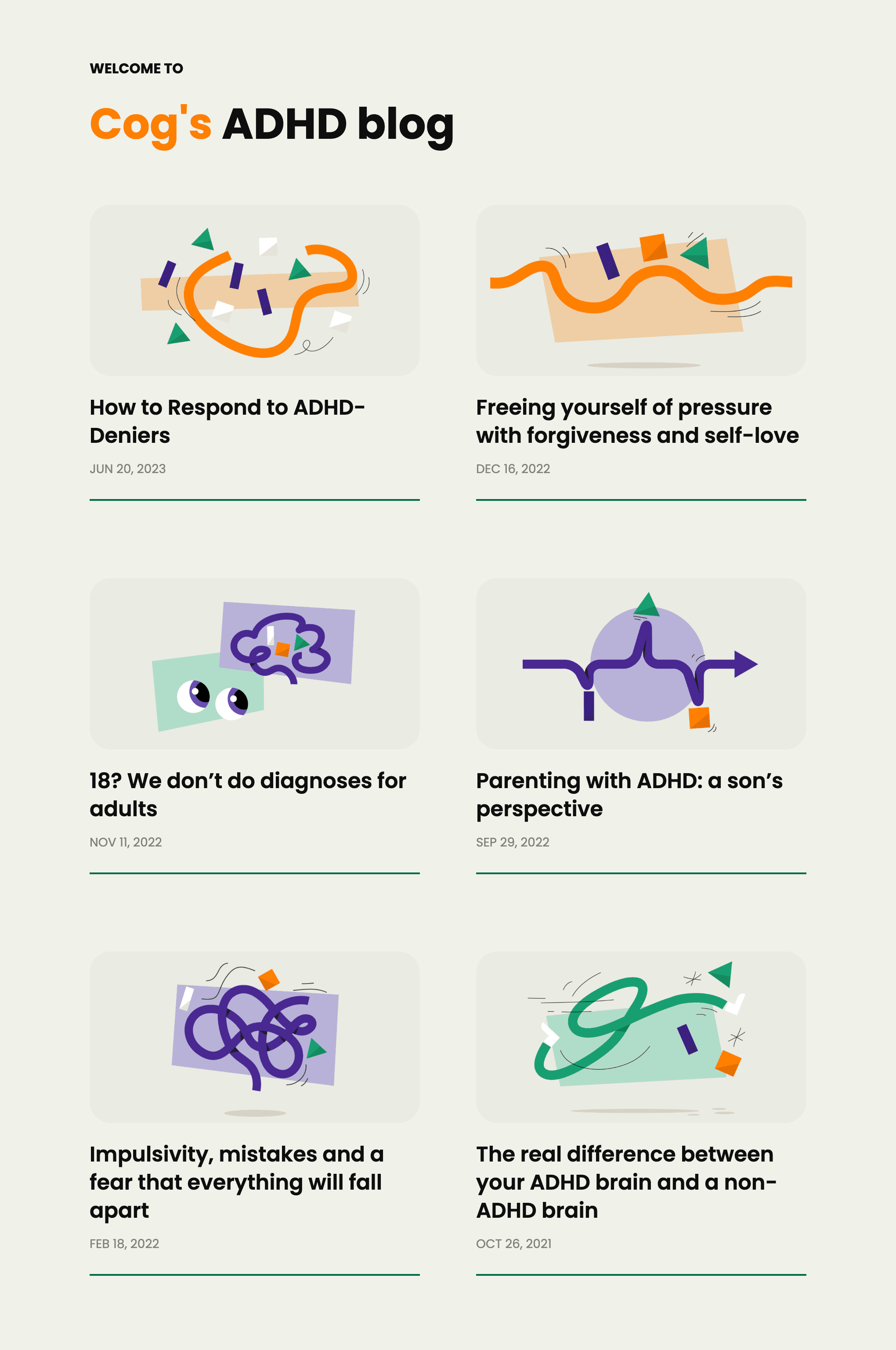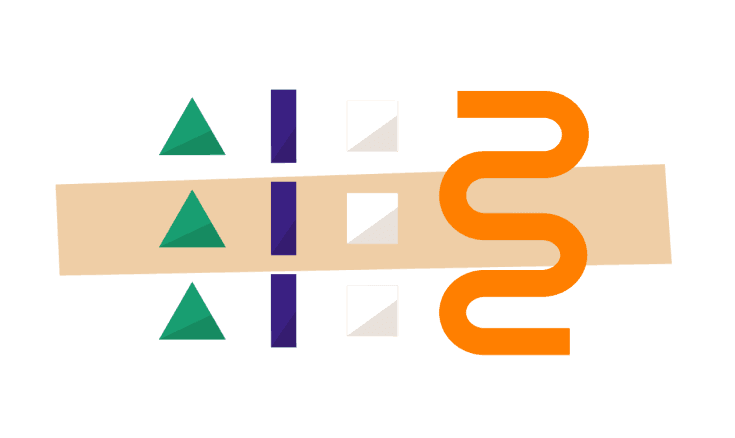Design and implementation
of Cog's marketing website
BRAND

SUMMARY
Led the end-to-end design of cogadhd.com, elevating the brand and creating a strategic content plan to engage both individual users and businesses.
ROLE
Strategy
IA
UX/UI
Development
DURATION
2 months
TOOLS
Figma
Webflow
Notion
SETTING THE STAGE
Cog is a mental healthcare startup supporting people with ADHD. The original website, focused on individual users, failed to communicate the product’s value. As we began exploring a B2B offering, it became clear the site needed a strategic redesign to speak to two distinct audiences and support the company’s growth.
MY ROLE




Strategy
Designing for
a Dual Audience
For Individuals - B2C
Cog began as a personal tool for individuals with ADHD, quickly building a dedicated community who valued its support and resources..
For Businesses - B2B
As awareness of neurodiversity in the workplace grew, we saw increasing demand from companies seeking solutions to support ADHD employees.
To make sure the website effectively catered to both audiences, I started by aligning with the founder and sales team on business goals, brand positioning, competitive advantages, and tone of voice.
Objectives
Defining success
for cog's new website
goal #01
Help visitors see Cog as an industry leader and inspire interest in exploring the product further.
goal #02
Encourage visitors to download the app and sign up for a subscription or trial, creating an easy path for engagement.
goal #03
B2B lead generation
Attract qualified leads and encourage demo bookings, focusing on building partnerships.
Methodology
Deep dive
into our audience
I developed personas for personal users and business leaders integrating Cog into their EAPs.
Analysing stakeholder feedback clarified needs, motivations, and decision-making, ensuring the website spoke effectively to each audience.
Targeted personas
content strategy
Individual User Journey




content strategy
Resonating with
Business Stakeholders




visual design
Maintaining
the Brand
"A distinct and consistent brand presence sets us apart from competitors, builds trust and familiarity with our customers, and eventually leads to long-term brand value."
brand identity >
Cog has a strong, vibrant brand built around positivity and energy. The illustrations and mascot, "Scriggly," distinguish it from competitors and are loved by our users.
following foundations >
SCALABLE DESIGN
Integrating Blogs
to Drive Engagement
As part of our content strategy, I integrated blog posts from Medium into our website to strengthen engagement and ownership of our content.
#01
Blog posts were already a strong traffic driver through in-app links and search engines.
#02
Some customers first discovered Cog through these blogs, showing their impact on user acquisition.
#03
This highlighted the role of blogs in user engagement, brand awareness, and conversion.
using Webflow's CMS…
EXECUTION
Building with Webflow
To bring the new design to life, I developed the website using Webflow. This included:
This was my first large-scale project in Webflow, so I was learning and adapting as I built the website. It was really fun and challenging to develop these technical skills and deliver results under tight deadlines.
Challenges
establishing
tracking systems
One of the key challenges was the lack of detailed analytics on the old website, which made it difficult to identify pain points or benchmark performance for future improvements. To address this, we've:

looking forward
Measuring Success
To measure the success of this project, I implemented tracking for key metrics tied to each goal. These were used to uncover areas for improvement and establish data-driven benchmarks.
goal
measure how effectively the website is attracting visitors, as well as how engaging the content is
Metrics
monthly website visits
average time on the site
bounce rate
goal
measure how well the website converts individual visitors into app users
Metrics
click-through rate for download buttons
conversion rate from clicks to app downloads
goal
measure the effectiveness of B2B-focused content in generating qualified leads
Metrics
the number of companies reaching out via the website
Key Takeaways
Designing for
Strategy and Marketing























